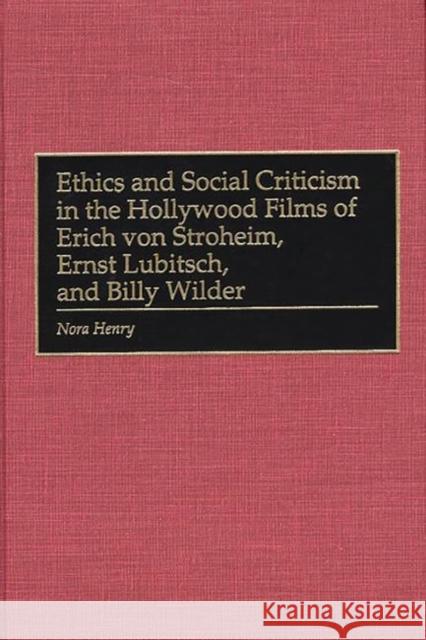Ethics and Social Criticism in the Hollywood Films of Erich Von Stroheim, Ernst Lubitsch, and Billy Wilder » książka
Ethics and Social Criticism in the Hollywood Films of Erich Von Stroheim, Ernst Lubitsch, and Billy Wilder
ISBN-13: 9780275964504 / Angielski / Twarda / 2000 / 264 str.
Ethics and Social Criticism in the Hollywood Films of Erich Von Stroheim, Ernst Lubitsch, and Billy Wilder
ISBN-13: 9780275964504 / Angielski / Twarda / 2000 / 264 str.
(netto: 340,20 VAT: 5%)
Najniższa cena z 30 dni: 355,74
ok. 30 dni roboczych
Dostawa w 2026 r.
Darmowa dostawa!
This study of Erich von Stroheim, Ernst Lubitsch, and Billy Wilder focuses on what the common ethical themes in their Hollywood films unveil about the cultural and intellectual heritage of these German and Austrian emigres and their influence on American culture. Aware of the influential power of their films, these filmmakers strove to raise the intellectual standard and the positive educational value of the American film. Brief individual biographies describe their heritage, major influences, and goals and draw connections among the three filmmakers in their preference for German and Austrian literature, which focuses on social criticism, ethics, and the problem of identity. Detailed analyses of their individual styles of filmmaking and readings of selected films reveal how they put their philosophies into practice and to what extent they influenced one another. Films analyzed include "The Merry Widow, " "The Wedding March," "Heaven can Wait, To Be or Not To Be, Sunset Boulevard, "and "The Fortune Cookie "among others. By delineating their contributions to the development of modern film, this research explores the filmmakers impact on film and cultural history.
The convergence of social and philosophical inquiry film-history in this study of Lubitsch, Wilder, and von Stroheim will appeal to scholars of film, of German literature and culture, and of American cultural history. Separate chapters discuss each filmmaker and his movies. A glossary of technical terms and a selected filmography are included.











